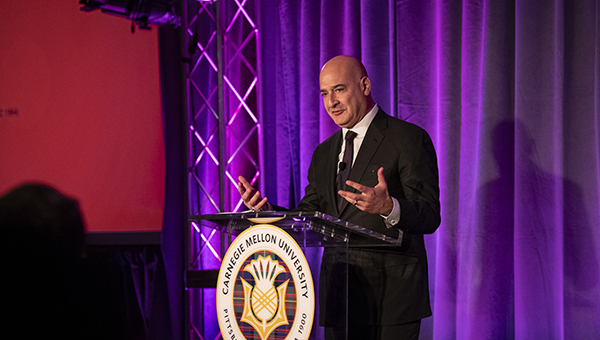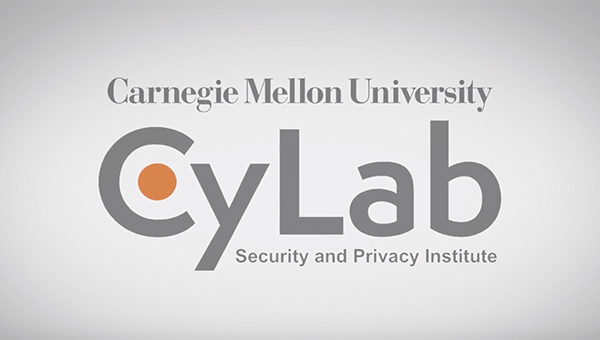Keeping Technology Centered on Humanity
Public Interest Technology is an emerging field unto itself, but Carnegie Mellon University has been a leader in this space for over 50 years, promoting the use of technology to advance the public interest.
CMU is ranked #1 in Computer Science, Computer Engineering, Artificial Intelligence, and Information and Technology Management. Many of the advanced technologies that are transforming society—such as artificial intelligence and autonomous vehicles—were invented at CMU. We are uniquely positioned to research, develop, and deploy uses of technology that serve the public good.
- The Heinz College of Information Systems and Public Policy is #1 in Analytics Education, and is the only college on the planet that co-locates a School of Public Policy and a School of Information Systems under the same roof. By design, Heinz College breaks down the barriers between disciplines in unprecedented ways.
- CMU's Department of Engineering and Public Policy applies expertise in multidisciplinary engineering to public interest areas including Energy Systems, Risk Analysis and Technology Innovation Policy.
- The CMU Robotics Institute's CREATE Lab has become a mainstay of the World Economic Forum's annual meetings in Davos, attracting the attention of world leaders by exploring socially meaningful innovation and deployment of robotic technologies.
The work we do has never been in greater demand. Our faculty are pioneers in the use of rigorous, quantitative analysis to address societal problems. Across our research initiatives and curricula, we champion the ethical use of technology to affect positive change in cities, governments, organizations, and communities. These values are inextricably woven into our pedagogy and campus culture.
The combination of these attributes are why we are seen as a global center of excellence and thought leadership in this field—a field which will only become more critical and influential in the years to come.
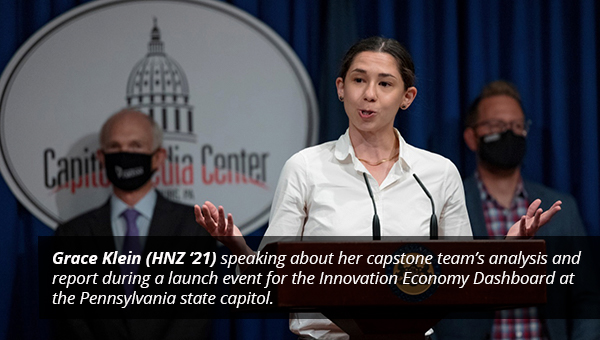
Partnerships With Impact
Our students have immediate impact, like this project to develop an Innovation Economy Dashboard with the Pennsylvania Department of Community and Economic Development.
Public Interest Technology Universities Network
Carnegie Mellon University is a proud charter member of the newly established Public Interest Technology Universities Network (PIT-UN), which formalizes a commitment among educational institutions to better integrate technology, public policy, ethics, and governance.
Heinz College Dean Ramayya Krishnan will represent Carnegie Mellon as its designee within the network. In this role, Krishnan will share the latest developments in curriculum and experiential learning from Carnegie Mellon with 20 designated members from other universities.

Data Science for Social Good Foundation
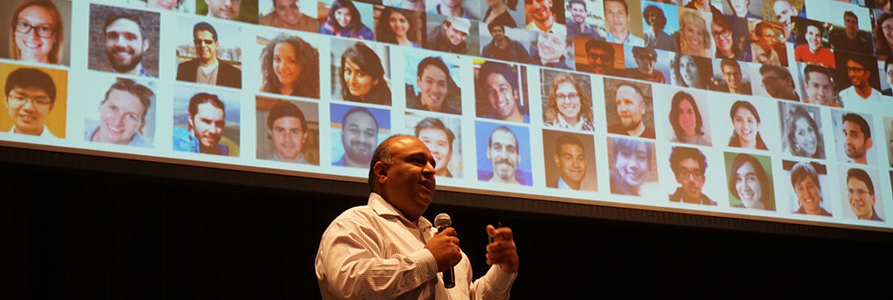
The DSSG Foundation sponsors a number of programs that encourage aspiring data scientists to actively and intentionally engage is projects that promote social good.
Carnegie Mellon University proudly hosts the Data Science for Social Good Fellowship. Founded by professor Rayid Ghani, the DSSG Fellowship is a full-time summer program to train aspiring data scientists to work on machine learning, data science, and AI projects with social impact in a fair and equitable manner.
The DSSG Foundation also created Solve for Good, a web platform for social good organizations to describe and submit problems that need data intensive help, and for volunteers to collaborate and apply their skills to these problems.
RESEARCH & THOUGHT LEADERSHIP
Our faculty and research centers are leading the way in technology for public good.
Block Center for Technology and Society
The Block Center focuses on how emerging technologies will alter the future of work, how AI can be harnessed for social good, and how innovation can be more inclusive and improve quality of life.
CREATE Lab: EarthTime
CMU's CREATE Lab launched EarthTime, an open source data tool providing interactive visualizations that document global issues like climate change and refugee crises.
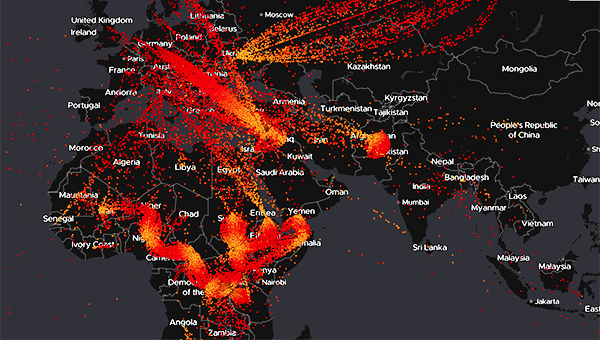
CyLab Security and Privacy Institute
CyLab is an interdisciplinary center leading initiatives focused on strengthening security and privacy in areas such as Internet-of-Things (IoT), cyber autonomy, and blockchain.
Metro21: Smart Cities Institute
Metro21 takes a forward-looking creative approach to bringing people, technology and policy together to significantly improve the quality of life for metropolitan area citizens.

PWC Center
The Digital Transformation and Innovation Center Sponsored by PwC advances new technologies in highly regulated industries.
Traffic21
Traffic21 is a multi-disciplinary research institute that designs, tests, and deploys technology-based solutions to problems facing the transportation system of the Pittsburgh region and the nation.


Center for Human Rights Science
CHRS conducts rigorous assessment of the state of human rights around the world, promoting the development and application of scientific methods for collecting and analyzing human rights information.
IDeaS Center
The Center for Informed Democracy and Social Cybersecurity (IDeaS) will study how disinformation is spread through online channels, such as social media, and address how to counter its effects.

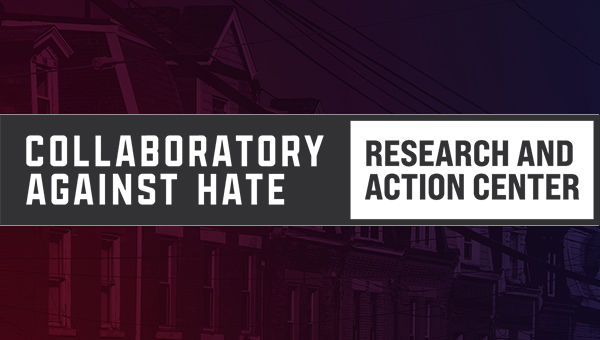
Collaboratory Against Hate
The Collaboratory Against Hate — Research and Action Center is a joint effort of CMU and the University of Pittsburgh to develop interventions against extremist hate and to minimize its impacts.
Center for Shared Prosperity
CMU and the Heinz Endowments have partnered to address longstanding barriers to equity and foster economic empowerment in the greater Pittsburgh region.

Academic Offerings
Carnegie Mellon's academic programs and coursework place Public Interest Technology front and center, giving our students a deep understanding of how advanced tech can deliver public benefits and improve societal well-being.
Our master's degree and certificate programs train professionals with the power to have an immediate impact on organizations and society upon graduation.
-
Degree Programs

PUBLIC POLICY & DATA ANALYTICS (MSPPM-DA)
The Master of Science in Public Policy and Management (MSPPM) program's Data Analytics pathway is perhaps the most quantitatively rigorous public policy program in higher education today. With a depth of analytics coursework that other policy schools can't match, our students learn to harness the power of data and analytic technologies to transform organizations that serve the public interest.

HEALTH CARE ANALYTICS & IT (MSHCA)
A health care innovation program unlike any other, the Master of Science in Health Care Analytics and Informatiuon Technology (MSHCA) program prepares professionals who will use technology to improve the quality of care, reduce costs, and improve the patient experience. Students in MSHCA learn how to convert raw data into actionable solutions for complex problems facing the health care system and medical firms.

INFORMATION SECURITY POLICY & MANAGEMENT (MSISPM)
Established in 2003 as the world's first program in Information Security Policy, the Master of Science in Information Security Policy & Management (MSISPM) program trains bold, creative students who want to make governments, organizations, and private citizens safer in a connected world. MSISPM's comprehensive curriculum blends technical skills with a breadth of coursework in policy, strategy, and management.
-
Public Interest Technology Coursework
-
Capstone Projects
New Ground and New Ideas: “Micro-Mini” courses Take On Societal Consequences
"Micro-minis" are innovative, heavily experiential course offerings focused on addressing Societal Consequences of Technological Change. These courses typically meet over two weekend dates for full-day sessions, often involving site visits and an audience with relevant public officials and experts as students work to solve specific policy challenges. Societal Consequences courses are open to all CMU students.
A recent Societal Consequences course crafted autonomous vehicle policy for the City of Pittsbuirgh. The class met with transportation officials from the greater Pittsburgh area including representatives from the City, key transportation agencies, and CMU research center. The group’s top recommendations were presented to the Mayor's Office.
Students Using Data for Social Good (SUDS)
Students Using Data for Social Good (SUDS) is a student group that brings together the vast (and growing) array of disciplines that contribute to the conversation of how cities are adapting new methods of “big data” collection and analysis to improve their service delivery, from providing water and police protection to repairing infrastructure.
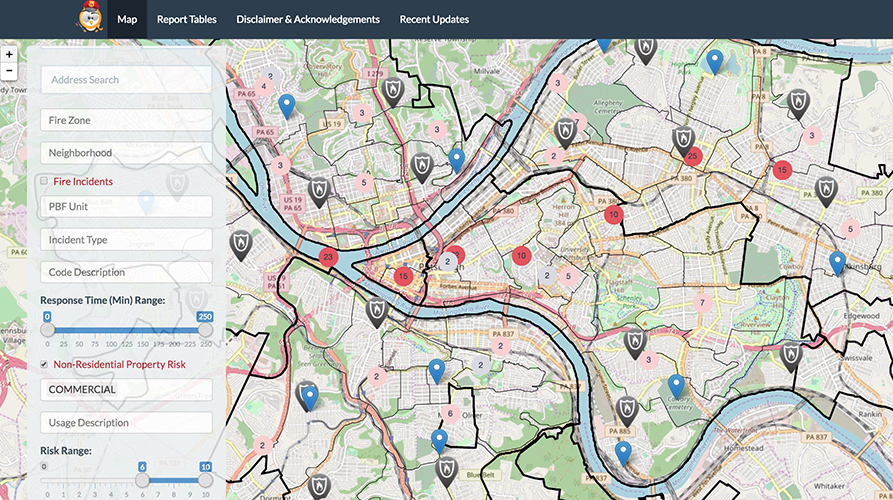
Sctreenshot of user interface from the CMU Fire Risk Predictor, which SUDS students worked on
---
Visit the SUDS blog by following the link below to learn more about past, current, and future projects.
RECENT EVENTS:
Justice and Technology Seminar Series, Sept. 2021 - Nov. 2021
Co-hosted by Heinz College, Metro21: Smart Cities Institute, and Traffic21: Transportation Research Institute
Faculty Dialogue: The Future of Work, May 27, 2021
Moderated by Ramayya Krishnan, Dean of Heinz College, Carnegie Mellon University
Panelists included:
- Jody Forlizzi, School of Computer Science, Carnegie Mellon University
- Anita Williams Woolley, Tepper School of Business, Carnegie Mellon University
- Rahul Telang, Heinz College of Information Systems and Public Policy, Carnegie Mellon University
Critical Considerations for Restarting a More Resilient and Robust US Economy Post COVID-19, June 12, 2020
Remarks by U.S. Representative Susie Lee
Moderated by David Wessel, Brookings Institution
Panelists included:
- Erik Brynjolfsson, Stanford University
- Erica Fuchs, College of Engineering, Carnegie Mellon University
- Ramayya Krishnan, Dean of Heinz College, Carnegie Mellon University
- Tom Mitchell, School of Computer Science, Carnegie Mellon University
Taking a Humanities + Tech Approach: Creating Inclusive Tools and Learning Experiences, Feb. 20, 2020
Hosted by New America
Featuring Illah Nourbakhsh of CMU's CREATE Lab
Public Interest Technology Week @ CMU, Sept. 30 - Oct. 4, 2019
Featured guests included:
- Rayid Ghani, Distinguished Career Professor, Machine Learning Department and Heinz College
- Smita Satiani, Head of Innovation Policy for X (Formerly GoogleX)'s Free Space Optics Project
- Lauren Renaud (MSPPM-DA ’17), Director of Analytics, Family Independence Initiative
FEATURE STORIES:
- Carnegie Mellon Drives Progress on Public Interest Technology, Launching Innovative Projects to Prepare Future Leaders
- Alumna Uses Analytics to Improve Health Across Allegheny County
- Partially Automated Vehicles are Already Here and Saving Lives
- The U.S. Withdrawal from Afghanistan and Digital Dunkirk
- Data For Social Good Is More Important Than Ever
- Machine Learning Tool Helps Human Rights Workers Seek Justice
- Data Tells a Global Story to Influence Policy (EarthTime)
- Climate Change Is Causing More Landslides. Machine Learning Can Help Predict Where.
- Pennsylvania’s Solar Future Is Sunnier Thanks To Heinz College
- Disrupting Food Waste and Hunger
- CMU Algorithm Sniffs Out Gerrymandering
- Heinz College Students Target Weaknesses in Election Security
- Disrupting Opioid Addiction: Heinz College Students Help the Government Combat the Opioid Crisis
- Explainable AI: What's Happening Inside the Black Box
- Another Dimension: Can Augmented Reality Redefine Public Art?
- Delivering Digital Government to All of Mexico's 127.5 Million Citizens
- Establishing Public Trust in Smart Cities
- Picture This! CMU Software Brings Future Plans to Life
- A Smarter City Starts Underground
- The City of the Future has Fewer Fires, Thanks to CMU
- Heinz College Students Craft Autonomous Vehicle Policies for the City of Pittsburgh
- The Future of Gigs and Big Rigs
- The Automation Roadmap: CMU Professors Use Machine Learning to Forecast Disruptive Tech
- World Economic Forum Taps Heinz College Students for Future of Work Recommendations
- Where There's Smoke, There's…Data! Heinz College Students Examine Legal Cannabis Markets for RAND
- Analytics, the Hype and the Hope: an Interview with Data Visionary Dean Ramayya Krishnan
- In SUDS, Heinz College Students Craft Hyperlocal Impact
- Doctors, Decisions, and Data: Analytics for Better Health Care
- Bankrupting Terrorism: Heinz Alum Hits Extremists Where it Hurts
- Can We Automate Fairness? Professor Alexandra Chouldechova on Machine Learning and Discrimination
- Heinz College Alumnus and IBM Revolutionizing Africa’s Economy with Mobile Data
- Police, Violence, and Data: The Black Lives Matter Movement
